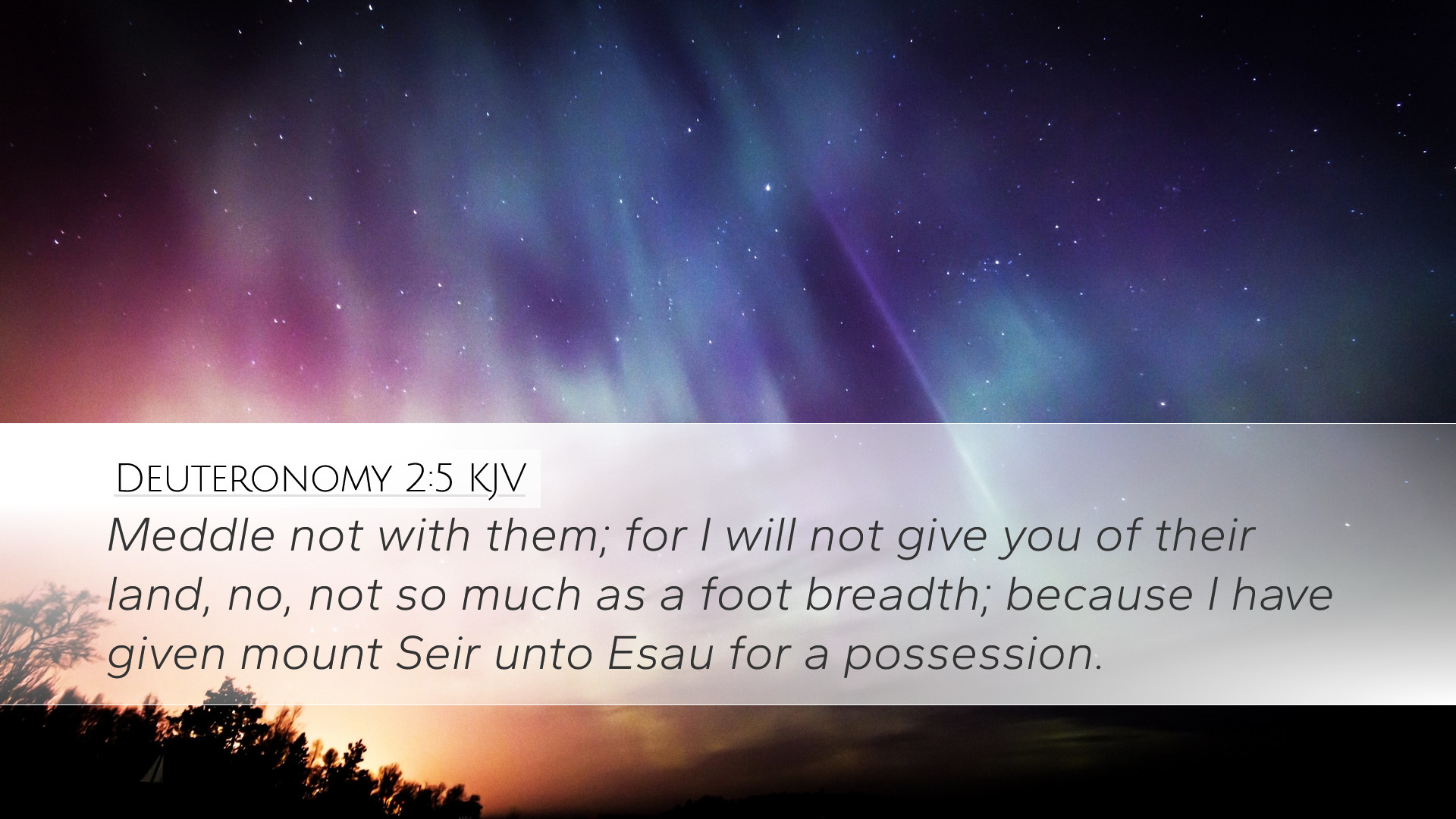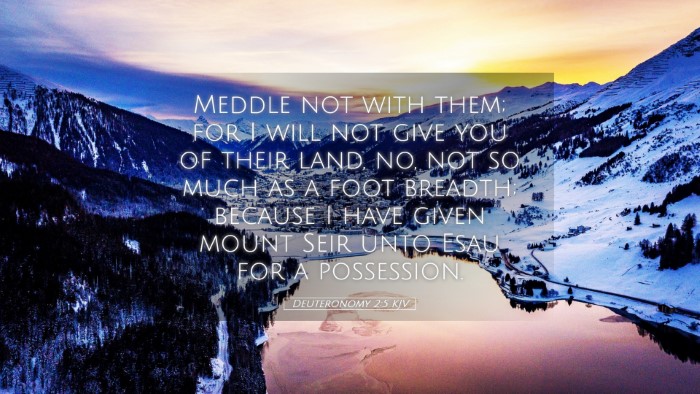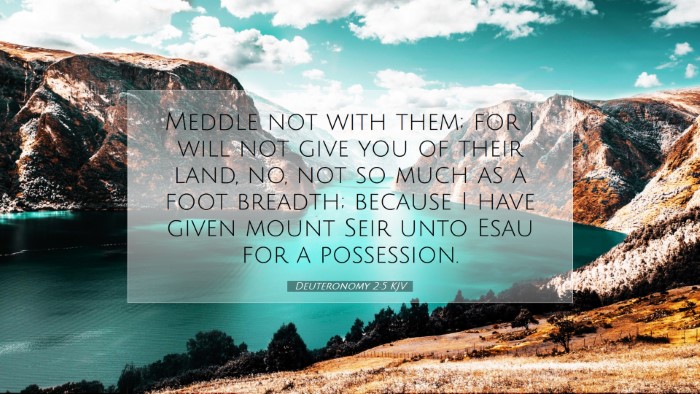Commentary on Deuteronomy 2:5
Verse: Deuteronomy 2:5
"Do not contend with them; for I will not give you any of their land, no, not so much as a foot of it; because I have given Mount Seir to Esau as a possession."
Contextual Overview
In this verse, God is speaking to the Israelites as they are preparing to enter the Promised Land. The context in which this command is given is significant. The Israelites are reminded that certain territories are not designated for them but are the inheritance of other nations. Here, God specifically points to Esau and the descendants of Edom, whom He has granted the land of Mount Seir.
Theological Implications
This passage raises various theological reflections regarding God’s sovereignty and the way He administers His promises to different peoples. The decision to give Mount Seir to Esau underscores the idea that God has set forth certain boundaries for nations, reflecting His ultimate authority over all creation. It also serves as a reminder to the Israelites that they must respect the territories designated by God to others, reinforcing the theme of divine justice.
Insights from Historic Commentaries
Matthew Henry
Matthew Henry emphasizes the importance of obedience to divine commands in this verse. He notes that the refusal to contend with the Edomites illustrates an aspect of God’s promise — that He would provide for Israel's needs without conflict with others. According to Henry, striving to take possession of what belongs to others is a distraction from God’s blessings.
Albert Barnes
Albert Barnes highlights the practical implications of this directive. He discusses how the Israelites were to understand their standing before God and His allocation of land. For Barnes, this instruction serves to teach Israel about trust in God's provision and the importance of moving forward without coveting what belongs to others. He interprets God’s warning as a prompt for Israel to recognize their specific calling and to pursue their inheritance without engaging in strife.
Adam Clarke
Adam Clarke expands on the historical and cultural backdrop of this command. He points out that Edom, descended from Esau, is a reflection of the broader familial relationship between these nations. Clarke provides insights on the significance of the land of Seir, emphasizing its rugged terrain and the nature of Esau’s descendants, contrasting it with the lushness of Canaan. He underlines that this exhortation cautions against belligerence and encourages reverence for God's established order.
Practical Applications
For pastors and theologians, Deuteronomy 2:5 offers profound lessons on humility, respect for divine boundaries, and the need for trust in God’s provision. The command to avoid disputes with other nations can be mirrored in the lives of believers today. It speaks to the necessity of focusing on one’s own journey and mission rather than being consumed by envy or rivalry.
-
Respect for Divine Boundaries: Acknowledge and respect the paths God has set for others as He has for you.
-
Focus on Your Mission: Just as Israel was called to pursue their inheritance without strife, modern believers are encouraged to focus on their own God-given purposes.
-
Trust in God’s Provision: Understanding that God has meticulously planned for each person and community encourages faith in His sovereignty.
Conclusion
Deuteronomy 2:5 serves as a potent reminder of God's sovereignty and the importance of maintaining a righteous perspective on what belongs to us. Through the words of God to the Israelites, we see an encouragement to respect His allocations for other nations while steadfastly pursuing the blessings He has set aside for us.
As we deepen our theological understanding through the insights of historical commentaries, we find valuable lessons that resonate in our walk of faith today.


